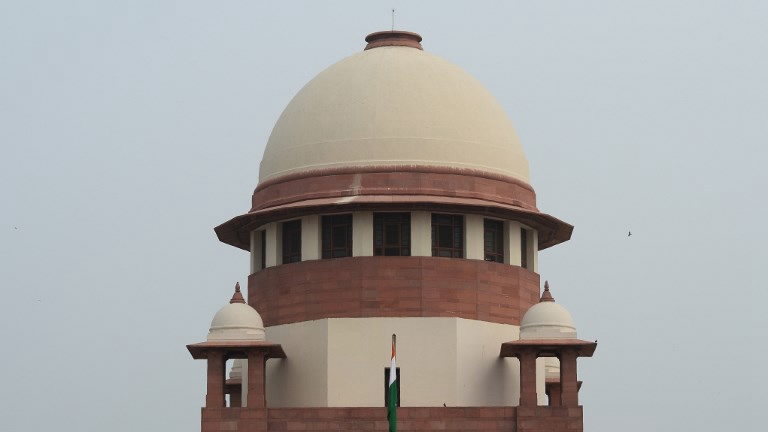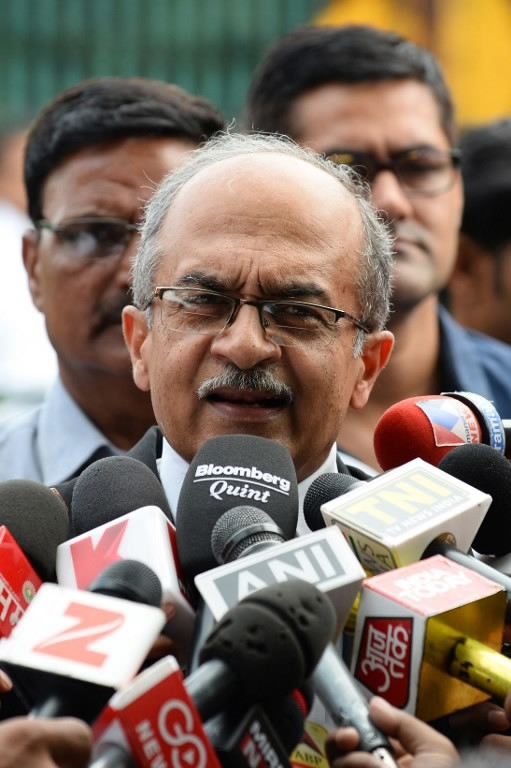
Politics
21:01, 24-Aug-2017
India's top court rules privacy a fundamental right
CGTN

India's Supreme Court ruled Thursday that citizens have a constitutional right to privacy, a landmark verdict that could have wide-reaching implications for the government's bio-metric program which holds data on over one billion people.
Privacy is not explicitly mentioned in the Indian constitution, and the government has argued that the country's 1.25 billion citizens cannot expect an absolute right to it.
But in a brief statement on Thursday, Chief Justice J.S. Khehar said privacy was "protected as an intrinsic part of Article 21 that protects life and liberty". The judges were unanimous, he said.

R.K. Kapoor, an Indian lawyer and petitioner in the right to privacy case, speaks to the media next to the Supreme Court in New Delhi on August 24, 2017. /AFP Photo
R.K. Kapoor, an Indian lawyer and petitioner in the right to privacy case, speaks to the media next to the Supreme Court in New Delhi on August 24, 2017. /AFP Photo
The Supreme Court set up a special bench to rule on the issue after a legal challenge to the government's Aadhaar biometric program, which has recorded the fingerprints and iris scans of more than one billion Indians.
But as it was rolled out, concerns arose about privacy, data security and recourse for citizens in the face of data leaks and other issues. Over time, Aadhaar was made mandatory for income tax returns and operating bank accounts. Companies were also pushing to gain access to Aadhaar details of customers.
"This is a blow to the government, because the government had argued that people do not have a right to privacy," said Prashant Bhushan, a senior lawyer involved in the case.

Prashant Bhushan, one of the Indian lawyers in the right to privacy case, speaks to the media on the Supreme Court lawns in New Delhi on August 24, 2017. /AFP Photo
Prashant Bhushan, one of the Indian lawyers in the right to privacy case, speaks to the media on the Supreme Court lawns in New Delhi on August 24, 2017. /AFP Photo
Prime Minister Narendra Modi's government has rejected suggestions that the program, set up in 2009, poses a threat to civil liberties, despite personal data being leaked in security breaches.
The government has argued the Indian constitution, which came into effect in 1950, does not guarantee individual privacy as an inalienable fundamental right.
During the hearings the nine-member Supreme Court bench recognized the risk of personal information being misused, and the challenge of protecting such private data in the internet era.
The judgment also has a bearing on broader civil rights as well as a law criminalizing homosexuality. A ban imposed on the consumption of beef in many states and alcohol in some could also come up for review.
Source(s): AFP
,Reuters

SITEMAP
Copyright © 2018 CGTN. Beijing ICP prepared NO.16065310-3
Copyright © 2018 CGTN. Beijing ICP prepared NO.16065310-3